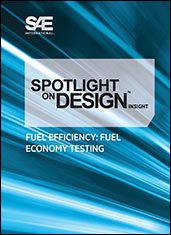Training / Education
Fuel Cells for Transportation
2024-07-16
This is a three-day course which provides a comprehensive and up to date introduction to fuel cells for use in automotive engineering applications. It is intended for engineers and particularly engineering managers who want to jump‐start their understanding of this emerging technology and to enable them to engage in its development. Following a brief description of fuel cells and how they work, how they integrate and add value, and how hydrogen is produced, stored and distributed, the course will provide the status of the technology from fundamentals through to practical implementation.








